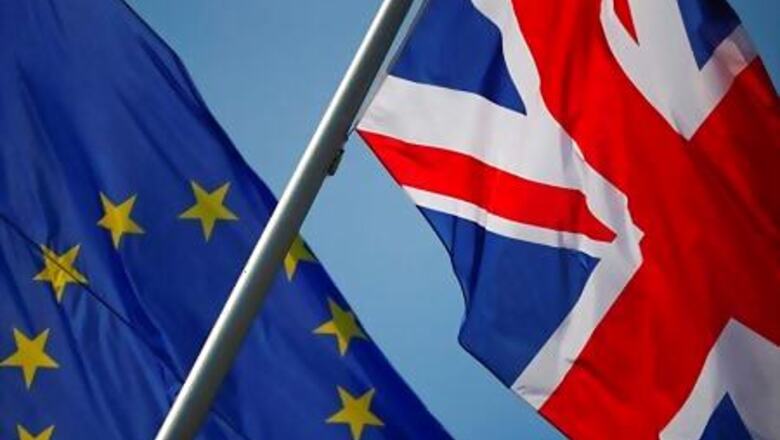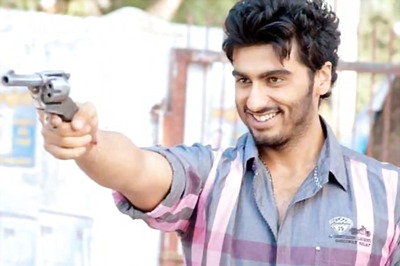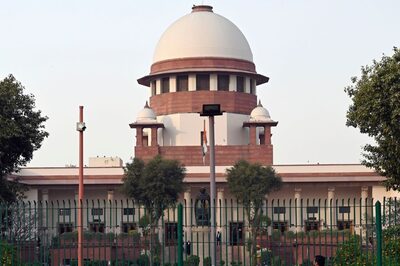
views
LONDON: Britain headed into a new round of Brexit trade talks on Tuesday acknowledging it could break international law but only in a “limited way” after reports it may undercut its divorce treaty with the European Union.
As the pound fell sharply on fears of a no-deal exit, the government’s legal department head quit in disagreement with a plan to overwrite parts of the Withdrawal Agreement treaty signed in January.
Britain left the European Union on Jan. 31 but talks on new trade terms have made little headway as the clock ticks down to an October deadline and then the end of the status-quo transition arrangement in late December.
As diplomats gauged whether Johnson was blustering or serious about allowing a tumultuous finale to the four-year saga, Britain insisted it would abide by the treaty.
Asked if anything in the proposed legislation potentially breached international legal obligations or arrangements, Northern Ireland minister Brandon Lewis said: “Yes, this does break international law in a very specific and limited way.”
“We are taking the powers to disapply the EU law concept of direct effect required by article 4 in a certain, very tightly defined circumstance,” he told parliament.
The remark prompted derision from both political opponents and some allies within his own party.
“Seeking to re-negotiate the Northern Ireland Protocol will be regarded world-wide as an act of bad faith,” fellow Conservative Party lawmaker Roger Gale said on Twitter.
Lewis said the government supported the Northern Ireland protocol of the Withdrawal Agreement and there was “clear precedence” for what Britain was planning.
Northern Ireland has Britain’s only land border with the EU, making it the focal point for some of the hardest problems to solve in the negotiations, centred around the regulation of goods flowing into the bloc from Britain.
That difficulty is magnified by the fear that any border infrastructure could damage the delicate balance brought by a 1998 peace process that ended three decades of conflict between Irish Catholic nationalists and pro-British Protestant unionists.
TRUST AT STAKE
Amid warnings from the EU that if it reneged on the divorce deal there would be no agreement governing the roughly $1 trillion annual trade, former Prime Minister Theresa May said the government risked serious damage to its international image.
“The government is now changing the operation of that agreement,” May, who resigned after her own Brexit deal was repeatedly rejected, told parliament.
“Given that, how can the government reassure future international partners that the UK can be trusted to abide by the legal obligations of the agreements it signs?” May asked.
The Financial Times said the government’s “very unhappy” legal head Jonathan Jones walked out in protest over the possible plan to undercut the withdrawal agreement in relation to the protocol for British-ruled Northern Ireland.
The prospect of a messy divorce between the EU’s $16 trillion and United Kingdom’s $3 trillion economies pushed sterling to two-week lows with traders betting there was more volatility to come.
David Frost, Britain’s top Brexit negotiator, said Britain was ramping up no-deal preparations.
The latest round of negotiations in London are likely to be tough: Britain says the EU has failed to understand it is now independent – especially when it comes to fishing and state aid.
The EU, weary of wrangling, says it needs specifics from London and that Britain cannot make its own rules and have preferential access to its markets.
“A disorderly Brexit would not be good for Europe, it would be a real disaster for Britain and its citizens,” German Finance Minister Olaf Scholz told Reuters.
British officials say they can make do with an Australia-style arrangement. Australia is negotiating a free trade deal with the EU to improve its market access, but for now largely trades with the bloc on World Trade Organization terms.
(Writing by Guy Faulconbridge in London; Additional reporting by Elizabeth Piper in London, John Chalmers and Gabriela Baczynska in Brussels, Padraic Halpin in Dublin, Michael Nienaber and Christian Kraemer in Berlin; Editing by William Schomberg, Andrew Cawthorne and Angus MacSwan)
Disclaimer: This post has been auto-published from an agency feed without any modifications to the text and has not been reviewed by an editor




















Comments
0 comment